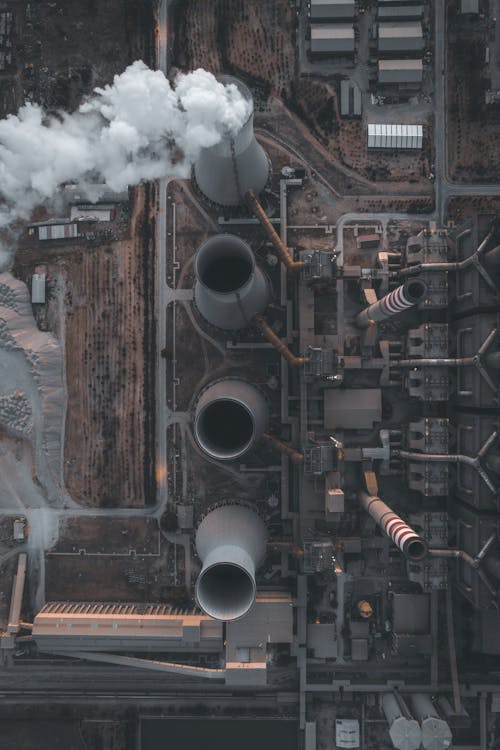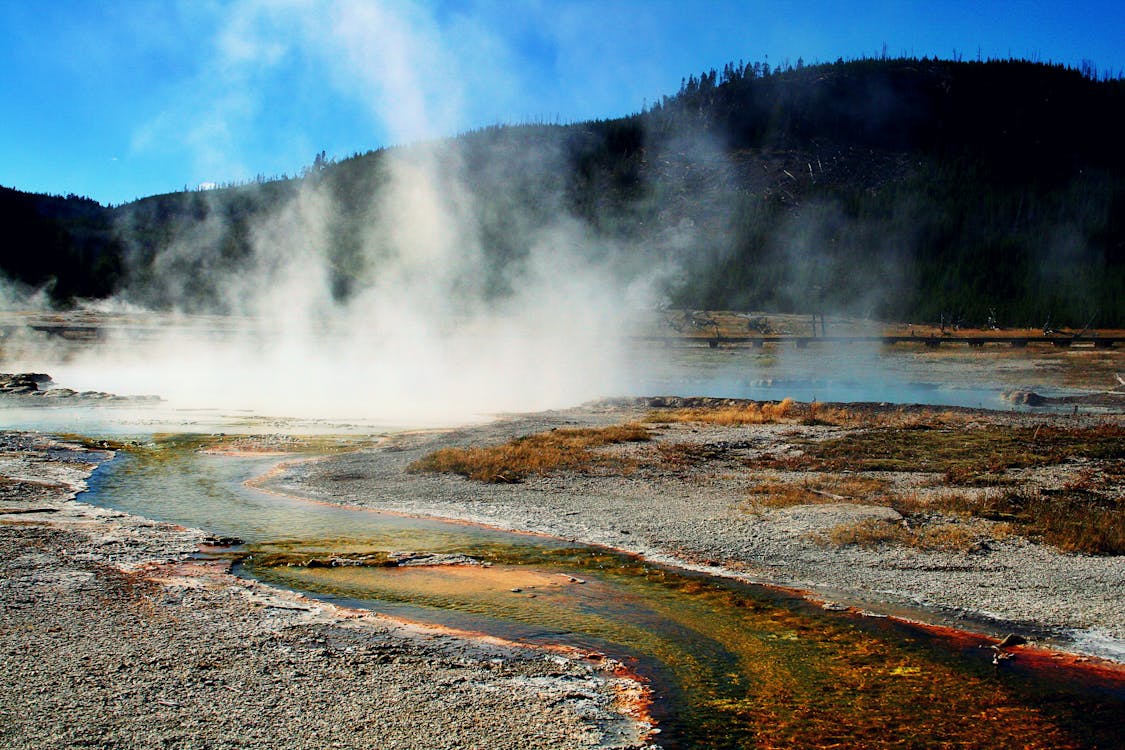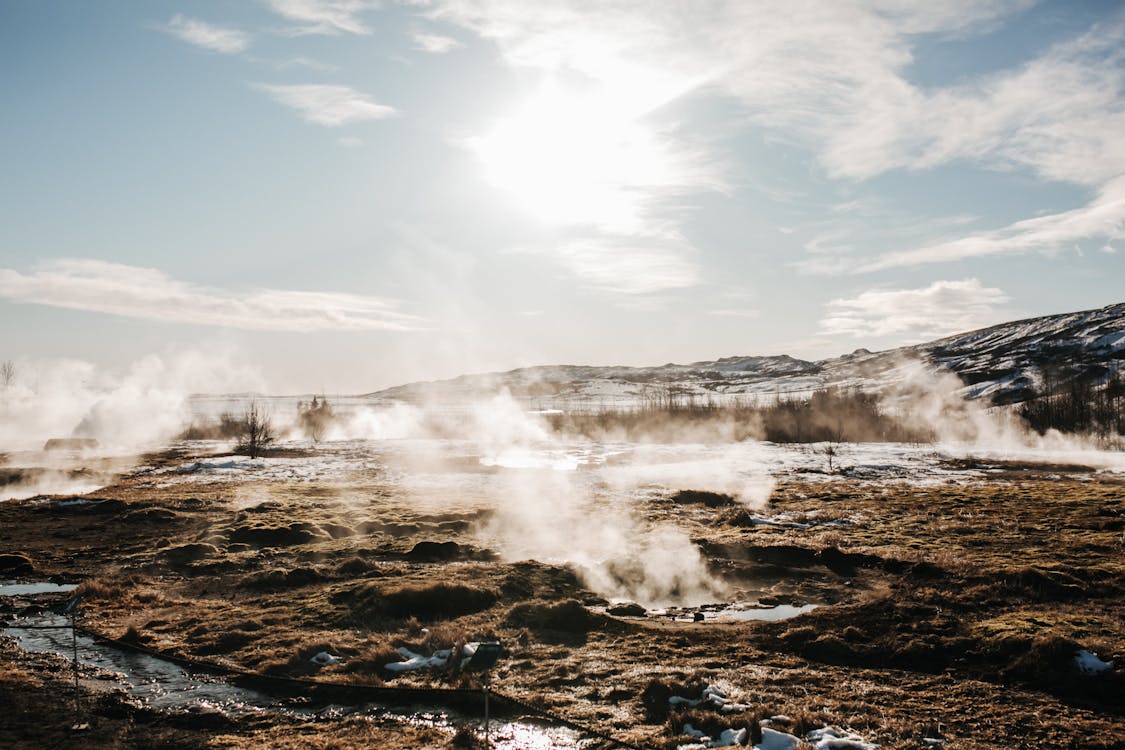Geothermal Energy 2023: Advantages & Disadvantages
May 12, 2023Geothermal energy has become increasingly popular as a renewable and sustainable energy source in recent years. It is created naturally by the movement of magma and the decay of radioactive materials in the earth’s core.
This heat is transferred to the earth’s surface through hot springs, geysers, and volcanic activity and can be used to produce electricity and heat. It is a good alternative to fossil fuels, which aren’t just finite, but also bad for the environment, and is used in tandem with other renewable energy sources.
But like any other energy source, geothermal energy has advantages and disadvantages. Let’s look at some of them.
Advantages of Geothermal Energy
Renewable & Sustainable
Unlike fossil fuels, geothermal energy does not produce harmful pollutants that can harm the environment and human health.
Geothermal power plants do not burn any fuel to generate electricity. Instead, they use the heat energy naturally present in the earth. This results in much lower greenhouse gas emissions than fossil fuels.
On top of that, since it relies on the earth’s natural heat, it is essentially inexhaustible since it is constantly being replenished.
Cost-Effective
Another advantage of geothermal energy is that it is cost-effective in the long run.
While the initial installation costs of a geothermal system can be high, the operational costs are typically much lower than traditional heating and cooling systems. This is because geothermal systems require very little electricity and have lower maintenance costs than conventional heating and cooling systems.
On top of that, geothermal systems have a much longer lifespan and thus don’t require frequent replacements. They are also not subject to fuel price fluctuations, and their associated costs are relatively stable.

Reliable & Consistent
Unlike other forms of renewable energy like solar or wind, geothermal energy is not dependent on weather conditions. It is available 24/7, and the energy output is consistent throughout the year. This makes it a stable source of energy for industries and households.
As long as the earth continues to produce heat, geothermal power plants can generate a steady supply of electricity and heat, making it a reliable energy source for homes and businesses. This also means geothermal systems have a higher capacity than wind or solar systems, making them even more reliable.
Independence from Fossil Fuels
Geothermal energy is a renewable energy source that does not rely on fossil fuels such as coal, oil, and gas to generate electricity or heat. So, it can help reduce our dependence on finite and increasingly scarce fossil fuels, which aren’t just depleting rapidly. Still, supply can also be subject to price fluctuations and geopolitical tensions.
Fossil fuels are major contributors to greenhouse gas emissions, which are a leading cause of climate change, but they are also a major source of the world’s energy. Switching to geothermal systems allows us to free ourselves from the dependence on fossil fuels and meet our energy demands without them running out.

Disadvantages of Geothermal Energy
Limited Availability
While geothermal energy is a renewable energy source, it is not universally available. Geothermal resources are concentrated in specific regions, mainly near tectonic plate boundaries, where magma or hot rocks are closer to the surface. Therefore, geothermal energy may not be available in areas that are far from these regions.
On top of that, even in areas with geothermal resources, not all resources are suitable for energy generation. For example, low-temperature geothermal resources may not produce enough heat to generate electricity efficiently.
High Upfront Cost
The initial cost of installing a geothermal power plant is high. This includes drilling and construction costs. The cost may be prohibitive for some regions, especially those with limited resources.
Environmental Impact
Geothermal energy has a relatively low environmental impact compared to fossil fuels, but it is not entirely free from environmental concerns.
For example, the release of greenhouse gasses such as carbon dioxide and hydrogen sulfide during the drilling and extraction process may be a concern. These gasses contribute to air pollution and climate change, though the amount of greenhouse gasses emitted in geothermal energy production is lower than that in burning fossil fuels.
There is also the risk of groundwater contamination. Geothermal energy systems rely on the circulation of water through underground rock formations to transfer heat to the surface. If the geothermal fluids are not properly managed, they can contain high levels of minerals, metals, and other contaminants that can pollute groundwater resources.
The construction and operation of geothermal power plants can also have an impact on local ecosystems and wildlife habitats.
Dependence on Water Availability
Geothermal energy solutions use water to transfer heat from the ground to the surface. The water is pumped down to the hot rock formations, where it is heated and then brought back to the surface to generate electricity.
This process requires a significant amount of water, and in areas where water resources are limited, it can be a challenge to develop geothermal energy projects. The water used in this process can also contain high levels of minerals and metals, which can damage the equipment over time. This reduces the system’s efficiency and causes maintenance costs to go up.
The use of geothermal energy also has an impact on local water resources. In areas where water is scarce, geothermal energy can compete with other uses such as agriculture and domestic consumption.
This can lead to conflicts over water resources and limit the potential for geothermal energy development.
While geothermal energy is a great alternative to fossil fuels in meeting our energy demands, it is not necessarily a suitable option everywhere. It’s important to look at the advantages and disadvantages before deciding on it.
However, again, it is a better option than fossil fuels, and if possible, geothermal systems should be installed where they can be used adequately and safely.
If you’re looking for a geological equipment supplier who can help you ensure your geothermal system is of top quality, CNPS has the best range of products available.














